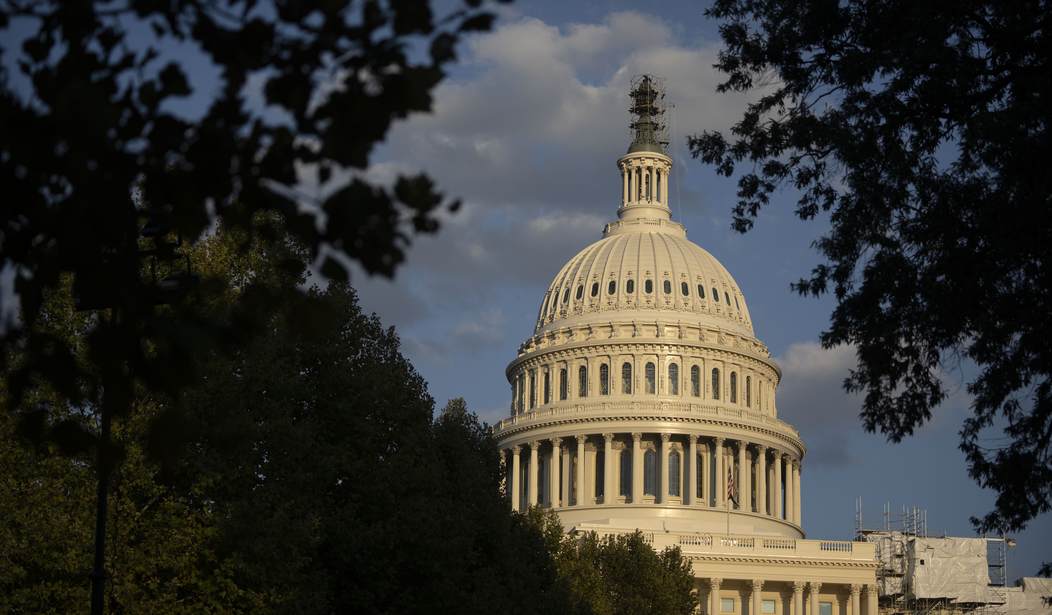When Republican Rep. Mike Johnson of Louisiana was serving his first term in 2018, he warned his colleagues and the American people about something he perceived to be "immoral" and "unsustainable."
"For years, Congress has spent irresponsibly and with what seems to be little or no thought for how it might affect future generations," Johnson said on the House floor on April 12, 2018.
"We are passing along a bill that our children and grandchildren may never be able to pay, and it is as immoral as it is unsustainable," he said.
"Meanwhile, our Nation's top military officials have repeatedly warned Congress that the number one threat to our national security is our debt," he said.
"We have no choice now but to correct this wrong and institute policies that promote fiscal responsibility," Johnson told his colleagues. "Currently, our national debt exceeds $20 trillion, and the number increases every second."
Johnson then condemned what was then the latest federal spending bill.
"The last omnibus package, which is a whopping 2,232 pages in length, allocated another $1.3 trillion," he said. "That is about $582 million of Federal spending per page.
"Our government is out of control, and we have to put an end to the dangerous and clearly excessive spending patterns that are coming out of Washington and out of this body," said Johnson.
"We cannot continue to spend money we don't have and drive ourselves further into the debt of hostile nations like China, who is the primary creditor in holding all of our debt," he said.
Recommended
Johnson then called on Congress to pass a balanced budget amendment to the Constitution.
The day he gave this speech, the exact federal debt, according to the U.S. Treasury, was $21,062,482,347,576.05. Last Thursday, when Johnson was negotiating a deal to keep the government funded into March, the debt was $36,167,124,467,492.90.
That was up $15,104,642,119,916.85 -- or 71.7% -- from when Johnson gave his 2018 floor speech on the debt.
The current Congress, which has a Republican majority in the House, first met at noon on Jan. 3, 2023. It will end at noon on Jan. 3, 2025.
As mandated by Article 1, Section 9, Clause 7 of the Constitution: "No Money shall be drawn from the Treasury, but in Consequence of Appropriations made by Law."
When the current Republican-controlled House first met on Jan. 3, 2023, the federal debt was $31,351,186,121,029.94. As of last Thursday, when the debt was $36,167,124,467,492.90, it had increased by $4,815,938,346,462.96 during this Congress.
Given that there were 72,648,436 U.S. residents under the age of 18 in 2023, according to the Census Bureau's American Community Survey, that equals approximately $66,291 per every one of those young people.
On Feb. 8, 2022, a Democrat-controlled House led by Speaker Nancy Pelosi passed a short-term continuing resolution (that would fund the government only through March 11 of that year) to avoid a government shutdown that would have otherwise occurred on Feb. 18.
Pelosi went to the House floor that day to praise the CR.
"I rise today in support of the CR that will keep government open, meet the needs of the American people, and honor the values of our Nation," Pelosi said.
Rep. Mike Johnson did not agree. When that CR passed the House by a 272-162 vote, he was one of 161 Republicans who voted against it.
That night, he led a group of Republicans in discussing on the House floor what they called the "crises facing America."
Rep. John Rose of Tennessee spoke about the debt.
"Just last week, the national debt eclipsed $30 trillion," he said on that night in 2022. "As our national debt balloons, American taxpayers will be left to foot the bill, not only for the billions and trillions of dollars we are spending annually but also on a dramatically increasing cost -- interest on the debt."
"This ticking time bomb, otherwise known as our national debt, has been ignored for far too long," Rose said.
Johnson expressed his agreement with this -- and blamed a Democrat-controlled Congress.
"I think about the same thing, our children and what we are doing to them and their future," he said. "They will have less security, less financial stability, less opportunity. They won't have the great fortune that we have because we are making bad policy decisions right now. We are adding to the debt. We are compounding the problem day by day, and we just can't get anyone here to pay attention to it.
"The Democrats in charge refuse to address the issue," Johnson said. "In fact, they just continue to double down on bad policy, and it is just so frustrating."
That November, Republicans won a majority in the House that convened in January 2023.
It is true that this current Republican-controlled House had to work with a Democrat-controlled Senate and a Democrat president -- when it allowed the debt to top $36 trillion.
The incoming Republican-controlled House, which will work with a Republican-controlled Senate and a Republican president, needs to deal with the debt the way Rep. Mike Johnson talked about it when he was a first-term congressman.
























Join the conversation as a VIP Member